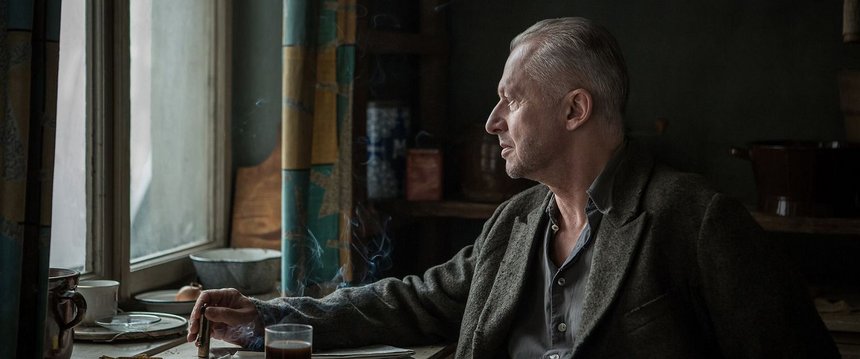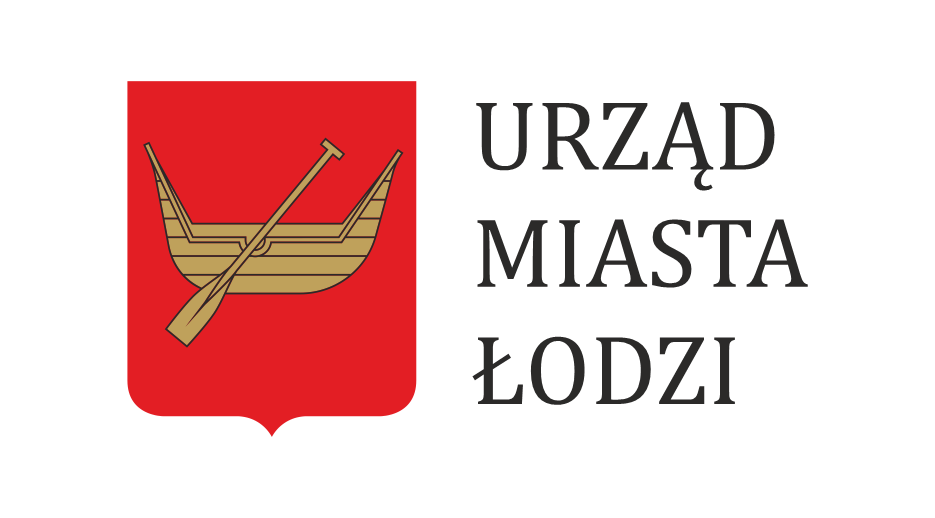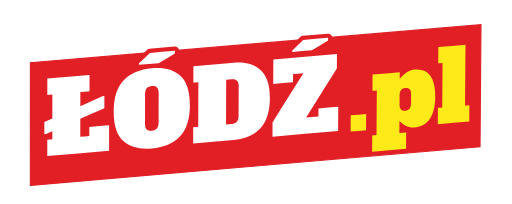„Powidoki”, reż. Andrzej Wajda, Polska 2016, 98’
"Powidoki" to ostatni film zmarłego 9 października 2016 roku Andrzeja Wajdy. Autorem scenariusza jest Andrzej Mularczyk, a autorem zdjęć Paweł Edelman. Producentem filmu jest Akson Studio, a koproducentami Narodowy Instytut Audiowizualny, Telewizja Polska, Fundacja Tumult oraz EC1 Łódź – Miasto Kultury. Film był współfinansowany przez PISF - Polski Instytut Sztuki Filmowej.
Bohaterem filmu jest Władysław Strzemiński, artysta, który nie poddał się socrealizmowi i doświadczył dramatycznych skutków swoich wyborów artystycznych. To film o tym jak socjalistyczna władza zniszczyła charyzmatycznego, niepokornego człowieka.
W rolę głównego bohatera wcielił się Bogusław Linda. Na ekranie partnerują mu m.in. Bronisława Zamachowska, Zofia Wichłacz i Krzysztof Pieczyński.
Trailer: https://vimeo.com/189919045
Andrzej Wajda (ur. 6 marca 1926 w Suwałkach) – polski reżyser filmowy i teatralny, w latach 1989–1991 senator I kadencji. Kawaler Orderu Orła Białego.
Popularność zdobył filmami inicjującymi tzw. polską szkołę filmową: Kanałem oraz Popiołem i diamentem, w których dokonywał rozrachunku z czasami II wojny światowej. Był także autorem takich ekranizacji dzieł literackich, jak Popioły, Brzezina, Wesele, Ziemia obiecana, Panny z Wilka i Pan Tadeusz. Współtworzył kino moralnego niepokoju, w którego ramach powstały osadzone w tematyce społecznej, demaskujące patologie systemu komunistycznego w Polsce obrazy: Człowiek z marmuru i jego kontynuacja Człowiek z żelaza, nagrodzona Złotą Palmą w Cannes. Do współczesnej twórczości Andrzeja Wajdy należą martyrologiczny film Katyń oraz eksperymentalny Tatarak. Reżyser zainicjował również powstanie istniejącego w latach 1972–1983 Zespołu Filmowego X, Mistrzowskiej Szkoły Reżyserii Filmowej utworzonej w 2001 roku oraz autorskiego studia filmowego. Jego działalność teatralna obejmowała wystawianie sztuk w teatrach gdańskich, warszawskich, krakowskich oraz za granicą.
Twórczość Andrzeja Wajdy charakteryzuje się nawiązywaniem do polskiego symbolizmu i romantyzmu, a także rozrachunkiem z mitami występującymi w świadomości narodowej Polaków. Reżyser za swoje zasługi w rozwoju kinematografii był wielokrotnie nagradzany, między innymi za całokształt twórczości otrzymał w 2000 roku Nagrodę Akademii Filmowej – Oscara.
KIEDY // 14.06.2018, godz. 18.00
GDZIE // Centrum Dialogu im. Marka Edelmana, ul. Wojska Polskiego 83
WSTĘP WOLNY
--------------------------------------------------------------------------------------------------------------------------------------
FROM THE CITY OF ŁÓDŹ / „Afterimage”
The Marek Edelman Dialogue Center and the International Relations Office – University of Lodz would like to invite you to the last screening from the series "From the City of Łódź // Movies from Łódź in English". This time we'll watch the movie „Afterimage” of Andrzej Wajda.
„Afterimage“, directed by Andrzej Wajda, Poland 2016, 98‘
Powidoki (Afterimage) is the last film by Andrzej Wajda who has passed away on October 9, 2016 at the age of 90. The script was written by Andrzej Mularczyk, and the film was lensed by Paweł Edelman. Powidoki (Afterimage) was produced by Akson Studio, co-produced by the National Audiovisual Institute, Telewizja Polska and Fundacja Tumult, and co-financed by the Polish Film Institute.
Powidoki (Afterimage) follows the story of Władysław Strzemiński, an artist who battled socialist realism and suffered terrible consequences of his artistic choices. It is a film about how communist authorities destroyed a charismatic and rebellious individual.
The lead is played by Bogusław Linda, with supporting roles by Bronisława Zamachowska, Zofia Wichłacz and Krzysztof Pieczyński.
Trailer: https://vimeo.com/189919045
Andrzej Wajda, (born March 6, 1926, Suwałki, Poland—died October 9, 2016, Warsaw), Polish director and screenwriter who was a leading figure in the “Polish film school,” a group of highly talented individuals whose works brought international recognition to their country’s post-World War II reality.
Wajda became interested in the visual arts when working as assistant to a restorer of old church paintings in Radom, Poland. He studied painting at the Academy of Fine Arts in Kraków (1946–49; now Jan Matejko Academy of Fine Arts) and then film directing at the Łódź Film School (1949–53). His debut feature, Pokolenie (1955; A Generation), together with Kanał (1957; “Canal”) and Popiół i diament (1958; Ashes and Diamonds), constituted a popular trilogy that is considered to have launched the Polish film school. The movies deal in symbolic imagery with sweeping social and political changes in Poland during the World War II-era German occupation, the Warsaw Uprising of 1944, and the immediate postwar years. They won Wajda significant attention, including prizes at international film festivals, and Popiół i diament, which was based on a Jerzy Andrzejewski novel, became especially renowned. Its lead actor, Zbigniew Cybulski, became famous for his portrayal of a young man whose idealism survives the humiliation and defeat of the occupation and the deaths of friends and the woman he loves.
With such films as Popioły (1965; The Ashes), Brzezina (1970; The Birch Wood), Wesele (1973; The Wedding), Ziemia obiecana (1975; The Promised Land), Panny z Wilka (1979; The Young Girls of Wilko), and Danton (1983), Wajda established himself as a skilled director of film adaptations of literature that present conflicts inherent in the human situation and that also examine Polish national myths. He engaged with contemporary issues in films such as Wszystko na sprzedaż (1969; Everything for Sale), Człowiek z marmuru (1977; Man of Marble), Bez znieczulenia (1978; Without Anesthetic, or Rough Treatment), and Człowiek z żelaza (1981; Man of Iron). The latter, which was regarded as a manifesto against the ruling communist party in Poland and in support of the Solidarity opposition movement, won the Cannes film festival’s top prize, the Palme d’Or.
The highly acclaimed Korczak (1990) is a true story of the final days of Henryk Goldszmit (better known by his pen name Janusz Korczak), a Jewish doctor, writer, and child advocate who, in order to maintain his orphanage, refused to escape Nazi-occupied Poland during World War II. Wajda’s other films include Nastasja (1994); Pan Tadeusz (1999), which is based on Adam Mickiewicz’s epic poem of the same name; Zemsta (2002; The Revenge), which starred Roman Polanski; Katyń (2007), about the Katyn Massacre in 1940 that claimed Wajda’s father’s life; Tatarak (2009; Sweet Rush), a meditation on death that combined elements of fact and fiction; and Wałęsa. Człowiek z nadziei (2013; Wałęsa: Man of Hope), about the Solidarity leader. In 1996 Wajda received the Japan Art Association’s Praemium Imperiale prize for theatre/film, and he received an honorary Academy Award in 2000.
WHEN // 14.06.2018, 6 PM
WHERE // Centrum Dialogu im. Marka Edelmana (Marek Edelman Dialogue Center), ul. Wojska Polskiego 83
FREE ENTRANCE
Z miasta Łodzi // „Powidoki” // in English
- kategoria:
- Filmy
Centrum Dialogu im. Marka Edelmana i Biuro Współpracy z Zagranicą UŁ zapraszają 14 czerwca 2018 r. na ostatnie spotkanie z cyklu Z miasta Łodzi // Movies from Łódź in English. Tym razem obejrzymy „Powidoki” Andrzeja Wajdy.



